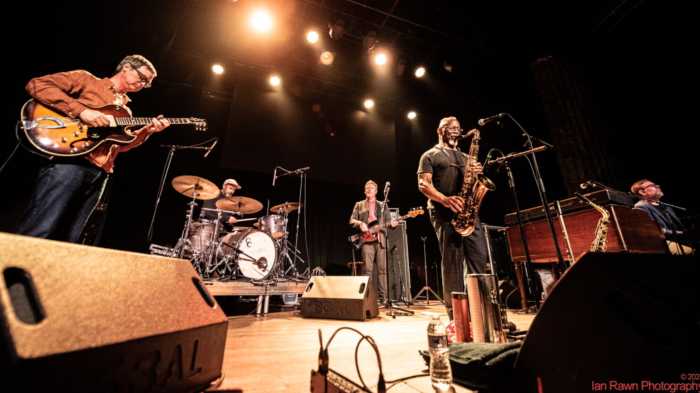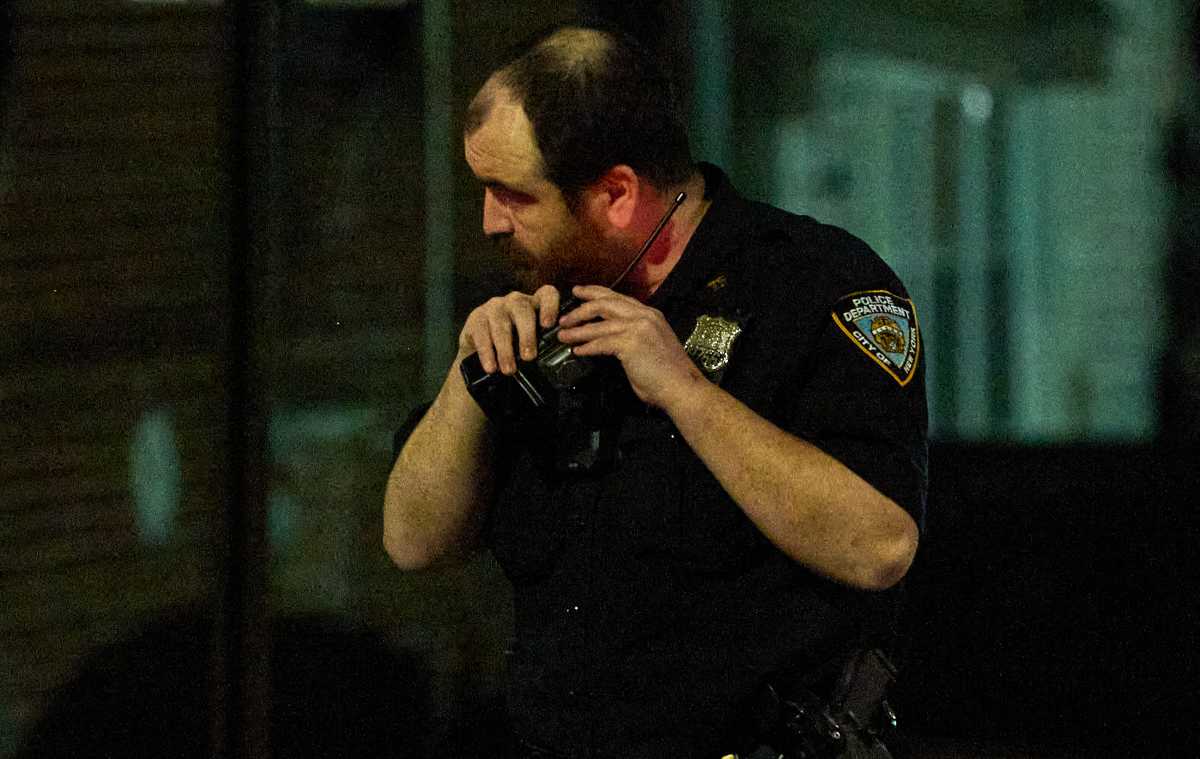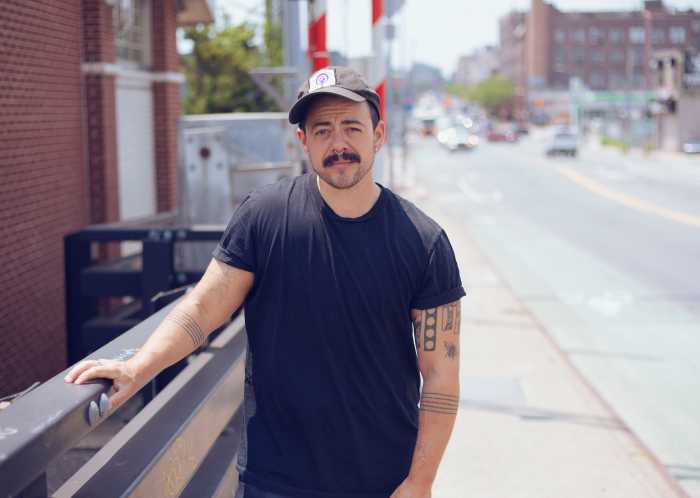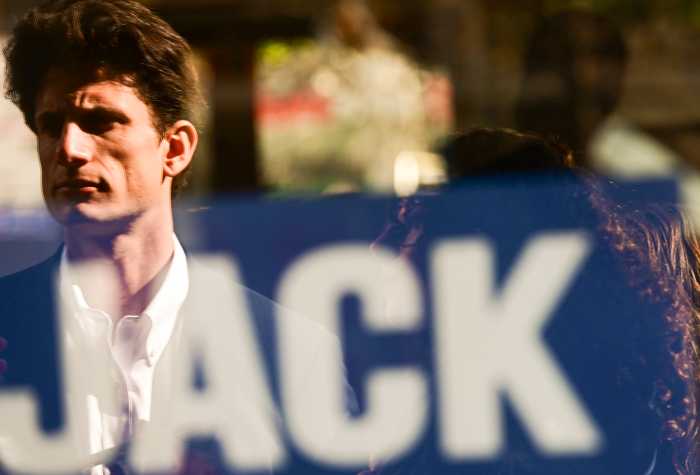The Waterloo Bridge Theatre Company’s recently
acquired performance space in Park Slope is smaller than many
people’s living rooms. The stage has only a few overhead lights
and does not have a curtain. Yet it is in this tiny theater that
some of the liveliest and most innovative Shakespeare you have
ever seen is being performed.
The company’s current production, "Twelfth Night,"
is directed by Michael Hagins, who also stepped into the role
of Sir Toby Belch after the actor who was originally cast suffered
an injury. It features a troupe that is superb down to the most
minor roles.
Written in 1600, when Shakespeare was 36 and leaving his youth
behind, "Twelfth Night" stands on the optimistic belief
that love conquers and cures all, and is tempered by the sure
knowledge that lovers are often foolish and fickle and life is
frequently unpredictable. The play is based on an old, Italian
comedy, "Gl’Ingannati" (1537), which Shakespeare had
already used for "Two Gentlemen of Verona." Like most
of Shakespeare’s comedies, its central conflict involves disguises
and mistaken identity and is resolved by suitable marriages.
In "Twelfth Night," Sebastian and his twin sister Viola
are shipwrecked off the coast of Illyria, each believing the
other has perished. After Viola is rescued by a sea captain,
she disguises herself as a boy, Cesario, and becomes the page
of Orsino, duke of Illyria.
As Orsino’s page, Cesario is sent to the home of the rich countess
Olivia, who is in a seven-year mourning period for her dead brother.
There he is to advance the suit of the lovesick duke. Olivia
doesn’t budge in regards to the duke but falls instantly in love
with Cesario.
The play also has one of Shakespeare’s most amusing subplots:
the clever scheming of Olivia’s drunken uncle Sir Toby Belch;
Sir Andrew Aguecheek, a knight he has introduced into Olivia’s
household in the hope he may win her hand; and Olivia’s waiting
woman, Maria – all of who want to get even with Olivia’s steward,
whose name, Malvolio, meaning "ill will," explains
their attitude.
Presiding over this messy situation is Olivia’s clown, Feste,
the fool whose profound wisdom is probably Shakespeare’s own.
Hagins has made only two noteworthy changes to Shakespeare’s
script. He has turned Malvolio into a Mafioso-type bodyguard
(the fantastic Bruno Campolo) dressed in a black suit and toting
an impressive hand gun.
And Antonio, the sea captain who rescues Sebastian, has become
Antonia, whom Elizabeth Vocam creates as a feisty, irrepressible
young lady madly in love with the man she saves from the sea.
These changes work so well and seem so fitting, it almost seems
that Shakespeare should have considered them himself.
Given the almost bare set (limited to two square boxes that serve
as stools), minimum costuming (Sebastian and Viola – as Cesario
– wear jumpsuits and the clown wears a jester’s cap) and the
intimacy of the theater, the audience cannot help but concentrate
on the actors’ delivery of the Bard’s magnificent lines and the
physicality of the actions that accompany them.
Of the principals, Robyn Berg’s Olivia is passionate and hilariously
extravagant in stark contrast to the decided composure of Julie
Ann McMillan’s Viola/Cesario. Colin Pritchard creates a sufficiently
smug and self-centered Orsino, but could have come in a little
heavier on the lovesick sighs that accompany lines like, "If
music be the food of love, play on."
Likewise, neither Hagins nor Patrick Egan, as Sir Andrew Aguecheek,
made their characters outrageous enough to bring out all the
humor inherent in those roles. Sir Toby Belch stands next to
Falstaff as one of Shakespeare’s bawdiest, and at the same time
wisest, clowns. And his sidekick, the worthy knight, is certainly
one of Shakespeare’s biggest jerks. When playing either of these
individuals, it’s almost impossible to overact.
Having mentioned these minor failings, it is important to emphasize
that frequently this production relies on supporting characters
as a major source of laughter. Elizabeth Munn as Maria, woman
to Olivia; Caroline Price as Fabian, servant to Olivia; and Rick
Redondo as Feste (who also sings and plays the guitar beautifully)
all make major contributions to the fast pace and high pitch
of the production.
Like many people over a certain age, this reviewer has seen "Twelfth
Night" more times than she would care to count. Nevertheless,
the Waterloo Bridge Theatre Company has brought an excitement
and originality to this play that makes it fresh and new once
again. For all those fearful of braving the cold to get to this
somewhat out-of-the-way playhouse, remember: there’s nothing
like laughter to keep you warm.
The Waterloo Bridge Theatre Company’s production of "Twelfth
Night" plays through Feb. 8, Thursdays through Saturdays
at 8 pm, and Sundays at 3 pm. Tickets are $15, $10 students.
The Waterloo Bridge Playhouse is located at 475 Third Ave. at
10th Street in Gowanus. For reservations, call (212) 502-0796.

























